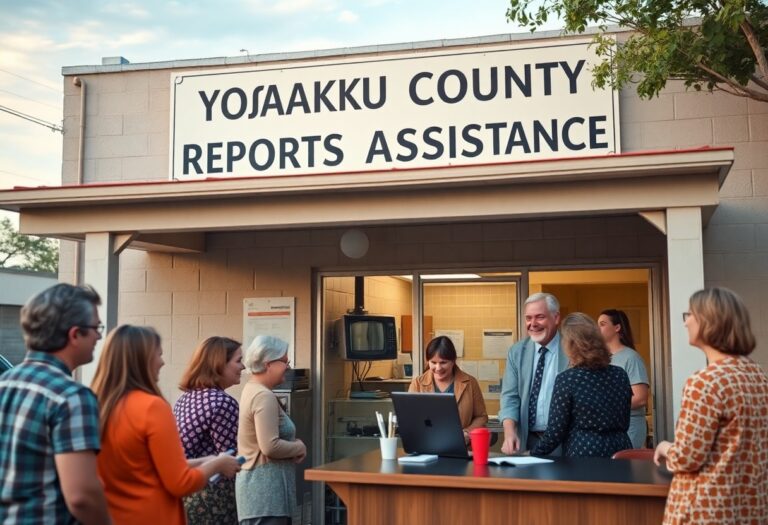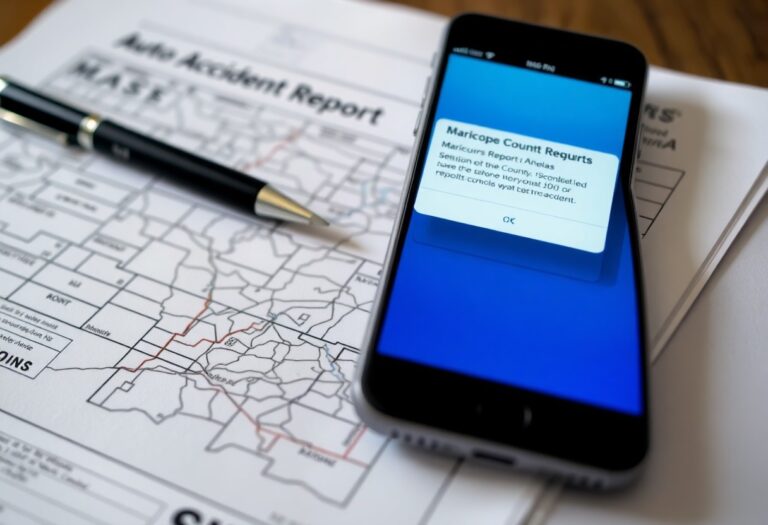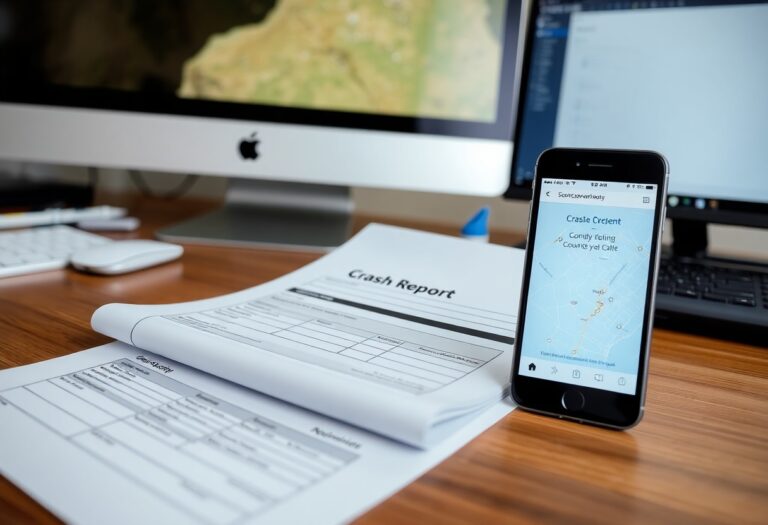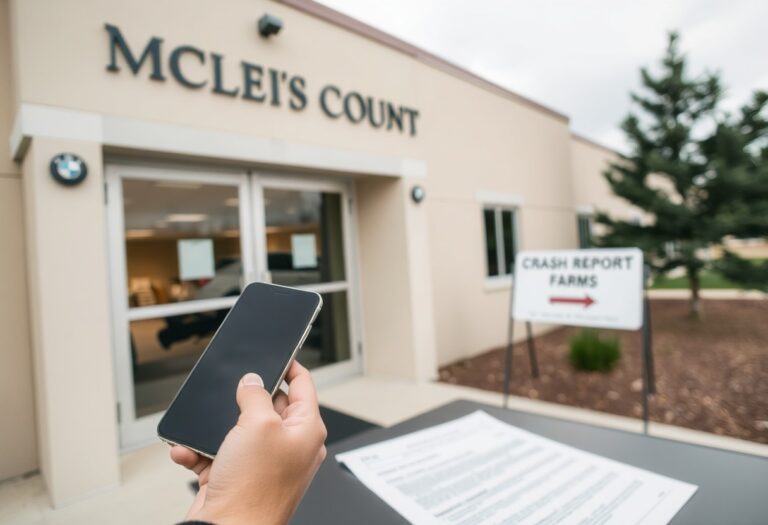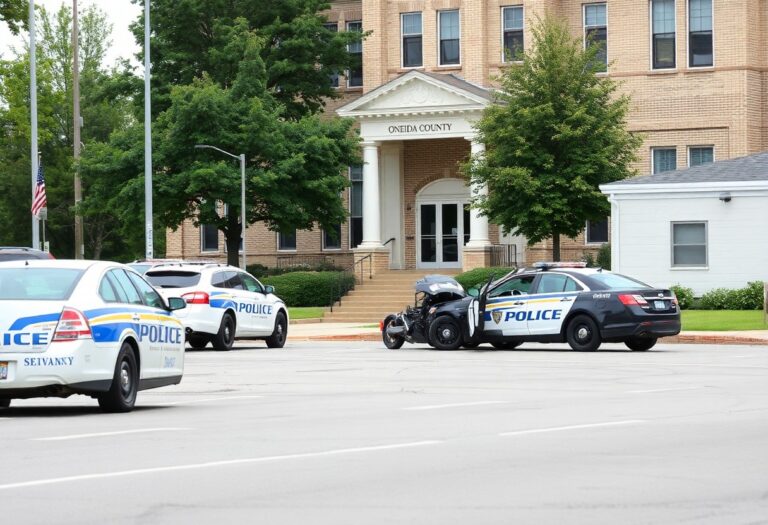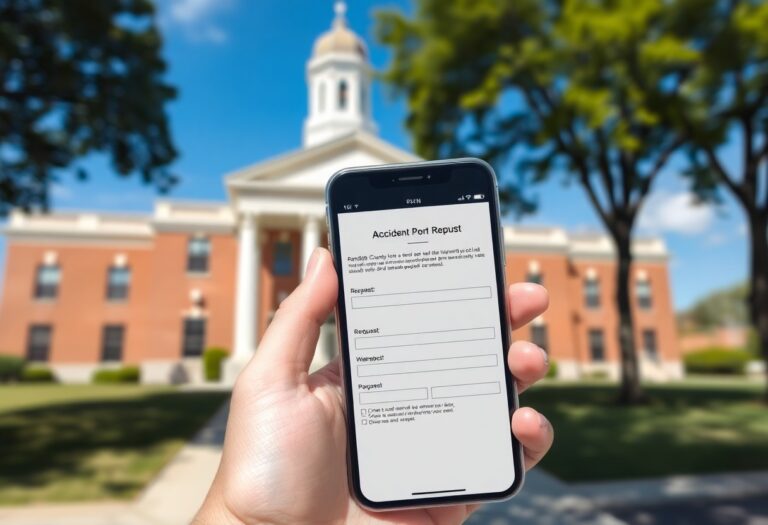There’s a straightforward process for you to obtain your crash report in Burlington County, New Jersey, following an auto accident. Understanding how to access this important document can greatly assist you in insurance claims, legal matters, or simply for your records. In this blog post, you’ll learn the specific steps to take, including where to submit your request, any involved fees, and how to receive your report in a timely manner. By knowing these necessary steps, you can ensure that you have your information at hand when you need it most.
Navigating the Local Landscape: Key Authorities for Crash Reports
Understanding Burlington County’s Law Enforcement Network
Burlington County has a structured law enforcement network that includes various police departments across towns and municipalities. Each department operates independently, handling traffic enforcement and incident reporting within their jurisdiction. Familiarizing yourself with these departments is beneficial, as they are your first point of contact when requesting a crash report.
Identifying the Right Departments for Your Request
To successfully obtain your crash report, pinpointing the correct department is crucial. Depending on where the accident occurred, it may involve interacting with the local police department or, in some cases, the New Jersey State Police. Each agency will have varying protocols, so knowing the right one aids in streamlining your request.
The specific department you need to contact is determined by the location of the crash. For instance, if the accident took place in a town governed by a local police department, that agency will manage the report. Conversely, incidents on state highways may fall under the jurisdiction of the New Jersey State Police. To find the appropriate contact, check your accident details, which will indicate the responding agency. You can also access the Burlington County website for a comprehensive list of local departments and their contact information, ensuring you direct your request accurately.
The Process Unveiled: Steps to Request Your Crash Report
Requesting your crash report in Burlington County involves specific steps tailored for efficiency. First, identify the appropriate law enforcement agency involved in the incident. Next, gather the necessary documentation, and finally choose your preferred method of submission for the request. Navigating this process correctly ensures you receive your report without unnecessary delays.
Documentation Required: What You Need Handy
Gather imperative documentation before starting your request. You’ll need your valid driver’s license or ID, the crash report number assigned to your case, and details of the accident, including the date, location, and the names of individuals involved. Having this information on hand streamlines your request and helps expedite processing.
Methods of Submission: Online, Mail, and In-Person Options
You have three convenient options to submit your request: online, by mail, or in-person. Each method provides flexibility depending on your preference and urgency. Follow the guidelines for the option that suits you best, ensuring that all required documentation accompanies your submission.
For online submissions, visit the official Burlington County website where you can complete the request form digitally. If you prefer the mail option, print and fill out the form, attach the necessary documents, and send it to the designated department. Alternatively, visiting the law enforcement agency in person allows for direct assistance, which can be particularly helpful if you have questions or require immediate support.
Anticipated Time Frames: How Long Will You Wait?
Processing your crash report request typically takes between 7 to 14 business days, depending on the volume of requests and the agency’s workload. Be prepared for potential delays during peak times or if additional information is required.
In some instances, expedited processing may be available for urgent requests. If you submitted your request online, you might receive notifications about its status via email, keeping you informed every step of the way. Understanding these time frames helps you manage expectations and plan accordingly as you await your report.
Fees and Costs: Budgeting for Your Crash Report
When seeking your crash report, understanding the associated fees is vital for effective budgeting. Costs may vary depending on the agency providing the report, as well as the method of access. Preparing for these expenses ensures you won’t encounter surprises during your request process or when making payment arrangements.
Typical Fees Associated with Accessing Reports
Generally, crash report fees in Burlington County can range from $5 to $20, depending on whether you access them online or through a physical request at the police department. Some agencies may charge additional fees for expedited services or copies of more detailed reports, so reviewing each agency’s fee schedule is advisable before submitting your request.
Waivers and Reductions: Who Qualifies?
If you find the fees burdensome, certain individuals may be eligible for waivers or reductions based on specific circumstances. Qualifications for discounts typically include financial hardship, being involved in the crash, or having an active role in a related court case. To petition for a fee waiver, you may need to provide documentation supporting your claim.
Eligibility for waivers and reductions can substantially lessen your financial burden. For example, if your income falls below a specific threshold established by the state, you may qualify to receive the report at no cost. Additionally, victims of the crash or family members could be granted waivers to prevent further hardship. Engaging directly with the agency processing your request can clarify the available options and assist you in navigating the process efficiently.
Addressing Common Concerns: What If You Encounter Issues?
Issues can arise during the process of requesting your crash report, ranging from delays to misunderstandings about the information you need. If you find yourself facing a problem, don’t hesitate to reach out for clarification or guidance. Knowing who to contact and how the process works can help alleviate any confusion and ensure you obtain your report in a timely manner.
Troubleshooting Request Denials: Know Your Rights
If your request for a crash report is denied, it’s imperative to know your rights. The New Jersey Open Public Records Act allows you to challenge such denials, often within seven business days. You can establish the legitimacy of your request and argue that you are entitled to access the information for lawfully permissible reasons.
Seeking Further Assistance: Who to Contact for Help
When issues arise, you can seek assistance from various authorities to sort out the problems with your crash report request. Start by contacting the law enforcement agency that handled the crash, as they can provide specific details about your request. Alternatively, the New Jersey Office of Attorney General offers resources and contact points for reporting systemic issues with records access.
In Burlington County, the local police department’s records unit is often the first-stop resource for guidance. You can also reach out to the Burlington County Prosecutor’s Office for advice on navigating any legal barriers you may encounter. If necessary, logging concerns or complaints with the New Jersey Office of Open Records can further support your case for accessing imperative documentation. Ensure you keep records of all your communications, as this can be helpful in resolving disputes more efficiently.
Leveraging Your Crash Report: Next Steps After Acquisition
Your crash report is not just a document; it’s a valuable tool that can guide you through the aftermath of an accident. After acquiring your report, analyzing its contents allows you to understand the factors involved in the incident. Whether you need it for legal actions, insurance claims, or personal records, knowing how to leverage this information can significantly affect your outcomes moving forward.
Understanding Your Report: Breaking Down the Details
Your crash report contains critical information, including the date, time, and location of the accident, descriptions of the involved vehicles, and statements from witnesses. These details can help you reconstruct the event or provide clarity in discussions with police or insurance representatives. By reviewing the report closely, you gain insight into how the accident was classified, which may affect liability determinations.
Possible Uses: Legal, Insurance, and Personal Tracking
Using your crash report can significantly impact your case’s direction, whether it’s for legal purposes, filing insurance claims, or tracking your driving history. By presenting accurate and detailed information, you strengthen your claims and protect your rights. Be it submitting the report for court use or ensuring you receive the compensation you’re entitled to from your insurer, understanding these applications is vital.
Delving deeper into legal aspects, if you plan to pursue a claim, your crash report serves as a foundational document that your attorney can use to establish the facts of your case. Insurance companies often require a copy of the report to process claims effectively. When you file a claim, having this report on hand speeds up the process, as it contains vital details about the accident that determine fault and liability. Additionally, keeping a copy for personal tracking can inform you of any patterns in your driving behavior, helping you become a safer driver in the future.
Final Words
Hence, to obtain your crash report in Burlington County, New Jersey, you should follow the outlined steps, including gathering necessary information and submitting the appropriate request form. Ensure you provide accurate details to facilitate a smooth process. By adhering to the local guidelines and being patient, you will receive your report efficiently. Always keep your personal records organized in case you need to refer back to the report in the future.







